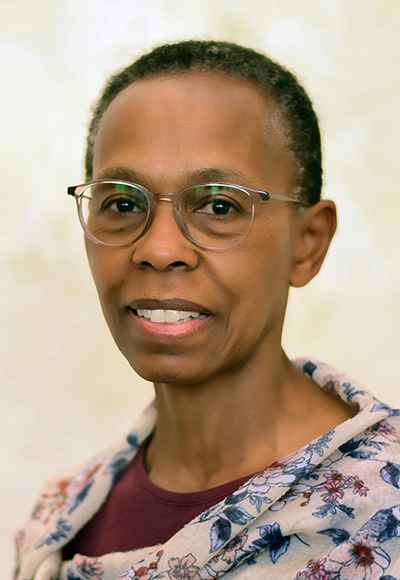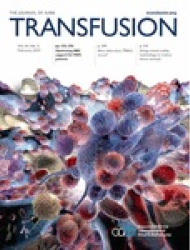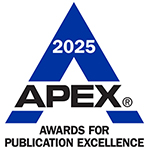
Catherine Karekezi, a pharmacist by profession with a PhD in medicinal chemistry, holds key positions in the non-communicable diseases (NCDs) arena as executive director of Non-communicable Diseases Alliance Kenya, member of Research Committee NCD Alliance East Africa, and a founder director of Kenya Diabetes Management & Information Centre.
Karekezi has previous experience in research and academia at Rhodes University (South Africa), University of Nairobi, USIU Africa and Kenya Medical Research Institute. She also serves as a member of the NCD Child Task Force on Essential Medicines. She contributes to NCD prevention, health system strengthening, research, advocacy and policy development in the region.
AABB NEWS: How did you become interested in the blood field in general and, more specifically, NCDs?
Karekezi: In 2000, I was invited to join a team of colleagues in establishing a nonprofit medical charity focused on raising community awareness about diabetes. Driven by a desire to help people take greater control of their health—and recognizing the rising burden of diabetes and related NCDs in Kenya, the widespread lack of awareness and the serious consequences of poorly managed conditions—I readily accepted. Having witnessed the impact of empowering individuals through self-management, I was eager to apply my background in pharmacy and medicinal chemistry to support communities in preventing and managing NCDs, using diabetes as an entry point.
AABB NEWS: How did your clinical background evolve into leadership in NCD advocacy, and what inspired that transition?
Karekezi: I developed an interest in research during high school, which was further reinforced after a six-month pre-university internship at the International Centre for Insect Physiology and Ecology (ICIPE). I hoped to use my pharmacy degree and postgraduate qualification to pursue a research career, which I did at Kenya Medical Research Institute, later moving to academia and now NCD advocacy.
In 2011, I joined a team of health professionals to establish the Non-communicable Diseases Alliance Kenya, which aims to address NCDs through a unified rather than disease-specific approach. With support from the global NCD Alliance, I conducted Kenya’s first survey of people with NCDs under the Our Views, Our Voices initiative, contributing to the 2017 Global Advocacy Agenda. This led to my involvement in developing Kenya's Advocacy Agenda for People Living with NCDs in 2018—one of the first of its kind in Africa—which continues to shape national advocacy efforts.
My shift to NCD advocacy was inspired by the realization that people with lived experience are not passive recipients of care but essential partners in shaping treatment, policy and systems. As they say: “We are the experts of our conditions” and “Nothing for us without us.” This marked a significant change from my original pursuit of a career in bench science to championing person-centered care.
AABB NEWS: What do you wish more people knew about transfusion medicine and NCDs, particularly chronic diseases like SCD?
Karekezi: NCDs like SCD are not a death sentence. They do not result from a curse or witchcraft, and they are not communicable. People with NCDs should not be stigmatized or discriminated against.
NCDs are manageable, and with early diagnosis, regular monitoring and access to affordable treatment, one can live a fulfilling life. Psychosocial support is also essential. Support should also extend to caregivers and family members providing care for individuals with NCDs.
NCDs are manageable, and with early diagnosis, regular monitoring and access to affordable treatment, one can live a fulfilling life.
AABB NEWS: What is some of the most important work the NCDAK is doing to better support and improve the quality of life for people with SCD in the region?
Karekezi: NCD Alliance Kenya, in collaboration with the Division of NCDs, Ministry of Health, is implementing two projects geared at improving the quality of life for people with SCD: PEN-Plus and Afya Dhabiti.
PEN-Plus (the Package for Essential Non-communicable Disease Interventions-Plus) is a strategy to increase access to services and save lives by decentralizing care for severe chronic NCDs in highly constrained health systems. SCD, type 1 diabetes, congenital and rheumatic heart disease and severe asthma are among the severe NCDs addressed by PEN-Plus.
These conditions are typically managed at distant referral hospitals, often inaccessible to rural populations in low-income countries.
More than 170 children and adolescents with SCD are currently enrolled in two PEN-Plus clinics, receiving treatment, self-management education, nutritional and psychological counseling. Support group meetings and camps offer children and caregivers a chance to connect and share experiences. With consistent access to hydroxyurea and routine monitoring, the frequency of SCD crises has declined, supporting regular school attendance.
Afya Dhabiti is another health system strengthening project aimed at improving access to high-quality care for people with SCD in Kenya. Implemented across 17 SCD-endemic counties, the project focuses on awareness, education and advocacy. Training, capacity building and research components are led by a third partner, AMPATH.
NCD Alliance Kenya supports the Ministry of Health in commemorating World Sickle Cell Day to raise national awareness of SCD. Increased community awareness is expected to reduce stigma and discrimination, ultimately improving access to treatment and care for those living with SCD.
AABB NEWS: What are the most pressing challenges facing SCD care and prevention in Kenya and the wider African region today?
Karekezi: SCD remains a significant, yet neglected, health burden in the African region. Despite the high prevalence, comprehensive treatment and effective prevention is hindered by a combination of various factors, including low community awareness and stigma; limited access to diagnosis, treatment and care; inadequate health care provider knowledge; gaps in managing acute and chronic complications; lack of psychosocial support; low government prioritization and funding; and exclusion of people with lived experiences.
AABB NEWS: Where do you see the future of transfusion medicine and SCD care in Africa?
Karekezi: Despite being endemic in several African countries, including Kenya, SCD has remained poorly understood, largely neglected and highly stigmatized. Late diagnosis and lack of access to essential treatment and supportive care mean that many children do not survive to adulthood. The 2023 launch of the World Coalition on Sickle Cell Disease is expected to drive greater prioritization of SCD to end preventable child deaths.
Improving and equalizing access to health professionals trained in the diagnosis, treatment and management of SCD—including the prevention and care of both acute and chronic complications—is essential. Access to comprehensive treatment such as hydroxyurea, pneumococcal vaccination, pain management, psychosocial and nutritional counseling and transfusion services can significantly improve outcomes. With this support, children and adolescents with SCD can lead fulfilling lives and face fewer long-term complications.
AABB NEWS: What has been the most fulfilling moment of your career so far?
Karekezi: Empowering individuals with NCDs to understand and better manage their condition, and advocate for their right to health.
AABB NEWS: What are your favorite leisure activities outside of work?
Karekezi: Walking, especially early morning at sunrise; and spending time with family and friends - lots of laughter!
PREVIOUS STORY
AABB Foundation Events at the 2025 Annual MeetingBACK TO ISSUE
June 2025
Transfusion is AABB’s scholarly, peer-reviewed monthly journal, publishing the latest on technological advances, clinical research and controversial issues related to transfusion medicine, blood banking, biotherapies and tissue transplantation. Access of Transfusion is free to all AABB members.
Learn More About Transfusion Journal
Keep abreast of what's happening in the field of biotherapies with CellSource - AABB's monthly update on the latest biotherapies news.
To submit news about the blood and biotherapies field to AABB, please email news@aabb.org.
President
Meghan Delaney, DO, MPH
Chief Executive Officer
Debra Ben Avram, FASAE, CAE
Chief Communications and Engagement Officer
Julia Zimmerman
Director of Marketing and Communications
Jay Lewis, MPH
Managing Editor
Kendra Y. Mims, MFA
Senior Communications Manager
Drew Case
AABB News
(ISSN 1523939X) is published monthly, except for the combined November/December issue for the members of AABB; 4550 Montgomery Avenue; Suite 700 North Tower; Bethesda, MD 20814.
AABB is an international, not-for-profit association representing individuals and institutions involved in transfusion medicine, cellular therapies and patient blood management. The association is committed to improving health by developing and delivering standards, accreditation and educational programs that focus on optimizing patient and donor care and safety.
+1.301.907.6977
Email: news@aabb.org
Website: www.aabb.org
Copyright 2025 by AABB.
Views and opinions expressed in AABB News are not necessarily endorsed by AABB unless expressly stated.
Notice to Copiers: Reproduction in whole or part is strictly prohibited unless written permission has been granted by the publisher. AABB members need not obtain prior permission if proper credit is given.
